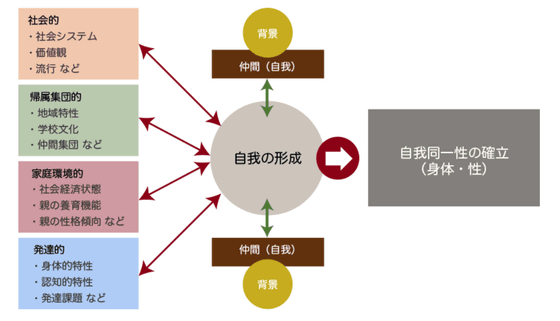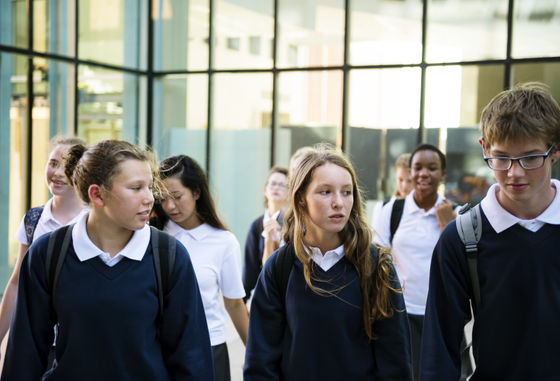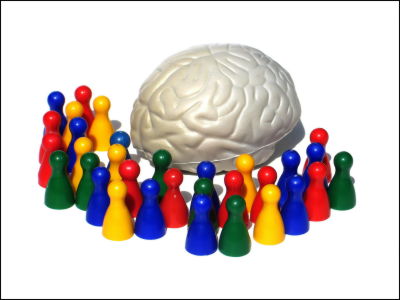Research results show that the age of believing in conspiracy theory peaks at 'Chuunibyo'

by
In Japan, second-year junior high school (14 years) time to 'refers to the phenomenon arises in that the painful words and deeds, such as fancy and tastes full of self-love two disease medium but net slang that' exists, just A joint research team in the United Kingdom has announced a research result that supports this, 'The age at which people believe in narcissism peaks at 14 years old.'
Measuring adolescents' beliefs in conspiracy theories: Development and validation of the Adolescent Conspiracy Beliefs Questionnaire (ACBQ) --Jolley --2021 --British Journal of Developmental Psychology --Wiley Online Library
https://bpspsychub.onlinelibrary.wiley.com/doi/full/10.1111/bjdp.12368
Conspiracy theories start to take hold at age 14, study suggests
https://theconversation.com/conspiracy-theories-start-to-take-hold-at-age-14-study-suggests-156006
14 could be peak age for believing in conspiracy theories
https://www.northumbria.ac.uk/about-us/news-events/news/14-years-old-conspiracy-theories/
A person experiences a phenomenon in which it becomes difficult for the growth of the mind to follow the major physical changes that begin with the secondary sexual characteristics during puberty, and it becomes sticky immediately after entering the second rebellious period or getting angry with trivial matters. You will be able to show ambivalent words and deeds, such as showing a sweet gesture.
Adolescent mental development and understanding of behavioral problems | e-Health Net (Ministry of Health, Labor and Welfare)
https://www.e-healthnet.mhlw.go.jp/information/heart/k-03-002.html

The slang term 'chuunibyo,' which refers to words and behaviors that tend to grow tall, is an expression rooted in the conventional wisdom that such words and behaviors increase around the second grade of junior high school. In Japan, around the age of 14, when he was in the second year of junior high school, he announced a new research result that 'there is the highest possibility of believing in conspiracy theory.'
According to a survey conducted by global marketing company YouGov, about 60% of the total population in the UK 'government is spying on the people' from absurd things such as 'lizard-type aliens dominate the earth' I believe in some sort of conspiracy theory, including something that seems likely. Research on such conspiracy theory has been active in recent years as it is related to psychology, but there was a problem that the subjects were limited to adults only.
Therefore, Dr. Jolly and his colleagues collaborated with junior high school teachers to create a 'questionnaire to measure the degree of conspiracy theory' in order to investigate age and the degree of conspiracy theory. This questionnaire answers the probable degree of conspiracy theory on a scale from 1 (not at all) to 7 (completely agrees), and the conspiracy theory included in the questionnaire is 'political.' Many of the decisions are influenced by secret societies, 'there are political groups with secret plans that are harmful to society,' and 'some of the infectious diseases were developed as weapons,' for a total of 36 items. Conspiracy theories that children do not know about their age and conspiracy theories that are too difficult for children, such as 'The cause of death of the late Princess Diana is actually assassination,' were excluded.
When we asked children aged 11-18 and adults aged 19 and over to take the questionnaire, the average conspiracy theory beliefs were 3.72 for 11-14 years, 4.67 for 14-16 years, and 16-17 for 14-16 years. It was 4.39 at age and 3.81 at age 18. The results show that children begin to believe in conspiracy theory between the ages of 14 and 16 and then gradually lose their religious beliefs.

Regarding this result, Dr. Jolly explained that the age of 14 corresponds to the '10th grade', which is the turning point of the British educational curriculum from 'key stage 3' to 'key stage 4'. He pointed out that 'difficulty in controlling emotions may lead to belief in conspiracy theory,' he said, citing research results that children aged 13 to 15 are more likely to have difficulty adjusting emotions. He also touched on the global epidemic of the new coronavirus infection (COVID-19) during the study period, saying, 'The significant increase in social media usage has further increased the belief in conspiracy theory among young people. It could have gotten worse. '
Related Posts:
in Note, Posted by darkhorse_log







